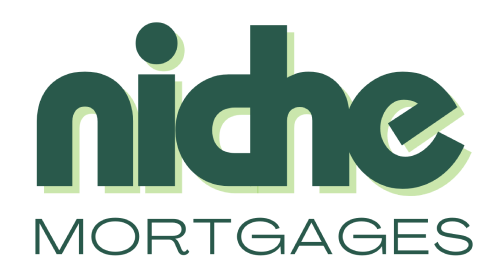Mortgage Refinancing Made Simple
What Does Refinancing a Mortgage Mean?
Refinancing means replacing your existing mortgage with a new one, often with different terms, interest rates, or a new lender. This can help you:
- Secure a lower interest rate
- Free up cash for renovations or investments
- Consolidate high-interest debt
- Extend or shorten your mortgage term
- Remove or add someone from the title
Whether you want to save on interest or restructure your finances, we’ll help you understand the pros and cons to find the right path forward.
Who Should Consider Mortgage Refinancing?
Refinancing isn’t just about getting a lower rate, it’s about reshaping your mortgage to fit your current financial reality. At Niche Mortgages, we help clients from all walks of life use refinancing as a tool to create stability, unlock equity, and reduce financial stress.
Homeowners Looking to Lower Monthly Payments
If interest rates have dropped since you signed your original mortgage, refinancing can help reduce your monthly payment, freeing up cash for other priorities.
Property Owners Wanting to Access Home Equity
Need funds for a renovation, business investment, or large expense? Refinancing lets you tap into your home’s equity, often at a much lower interest rate than personal loans or credit cards.
Clients with High-Interest or Unfavorable Mortgage Terms
If you’re locked into a high-rate mortgage or stuck with restrictive terms, refinancing may allow you to switch to a more flexible or cost-effective solution, even with alternative or private lenders.
Business Owners and Self-Employed Borrowers
You might not show high income on paper, but with strong deposits or retained earnings, refinancing is still possible. We work with lenders who understand how entrepreneurs manage their finances.

Ready to Refinance Your Mortgage?
Your mortgage should evolve with your life. If your current terms don’t reflect your financial goals anymore, it might be time to refinance, and we’re here to guide you through it.
Consolidate Your Debt with Mortgage Refinancing
Carrying multiple high-interest debts like credit cards, personal loans, or lines of credit? Mortgage refinancing can help you consolidate those debts into one manageable monthly payment, often at a much lower interest rate. By using the equity in your home, you can refinance your mortgage to access funds that allow you to pay off outstanding debts in full.
At Niche Mortgages, we work with homeowners across Canada to create smart debt consolidation strategies that reduce financial stress and help regain control over monthly finances. You’ll not only simplify your payments, but you may also improve your credit score and free up cash flow.
Frequently Asked Questions About Mortgage Refinancing
Refinancing can feel overwhelming if you’re not sure where to start. Below are answers to the questions we hear most often from homeowners exploring their refinancing options.
Our Professional TeamRefinancing means replacing your current mortgage with a new one, often to get a better rate, change your terms, or access home equity.
Yes. We work with lenders who understand non-traditional income. If you have strong bank deposits or retained earnings, refinancing is still possible, even without a high declared income.
It can be. We work with B-lenders and private lenders who offer flexible refinancing options for borrowers with credit issues, including collections or bankruptcy history.
Most lenders require you to keep at least 20% equity in your home after refinancing, but exceptions may apply depending on the lender and purpose. We’ll walk you through your options.
You can use the funds for home renovations, investing in a business, paying off debt, covering education costs, or simply creating financial breathing room.


